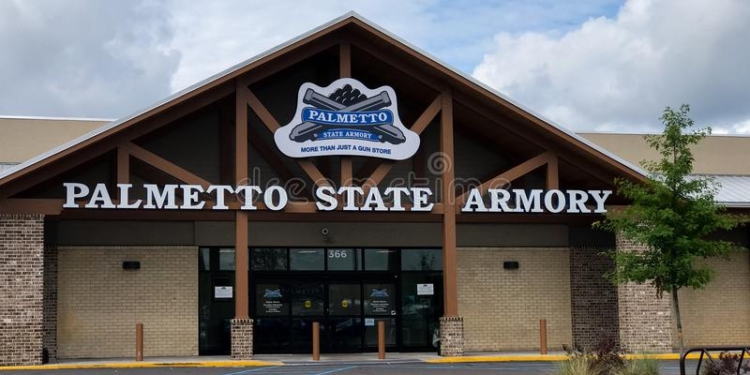South Carolina, known as the Palmetto State, offers a diverse real estate market with its unique blend of southern charm, thriving cities, and picturesque landscapes. This comprehensive guide delves into the real estate market from a real estate industry perspective, covering various aspects that influence the decision-making process for both buyers and sellers. Read on to explore the different facets of South Carolina’s property market, including market trends, top cities, financing options, and investment opportunities. You can learn more by visiting Jeff Cook’s real estate website.
South Carolina’s Market Trends: What’s Shaping the Real Estate Landscape?
a) Population Growth:
With a steadily increasing population, South Carolina has seen a rise in demand for housing. This growth can be attributed to the state’s excellent job market, affordable cost of living, and attractive climate. As more people relocate to South Carolina, the real estate market is expected to continue its upward trajectory.
b) Diverse Property Types:
South Carolina’s property market offers a wide range of options, from historic homes in Charleston to modern condos in Greenville. This diversity caters to the varied preferences of both local and out-of-state buyers, making the Palmetto State an ideal place for investment.
c) Vacation Rentals and Tourism:
Tourism plays a significant role in South Carolina’s economy, with popular destinations like Myrtle Beach, Hilton Head Island, and Charleston. The strong tourism industry drives demand for vacation rentals, offering property owners lucrative opportunities to generate income from short-term rentals.
Top Cities to Consider for Real Estate Investment
a) Charleston:
Charleston’s rich history, scenic waterfront, and thriving cultural scene make it a sought-after location for real estate investment. The city’s property market offers a mix of historic homes, modern condos, and luxury estates, catering to a diverse group of buyers and investors.
b) Greenville:
Greenville has transformed into a bustling city known for its strong economy, high quality of life, and affordable housing. The city’s real estate market is on the rise, with a growing number of new developments and increasing property values.
c) Columbia:
As the state capital and home to the University of South Carolina, Columbia has a stable real estate market with a mix of residential, commercial, and student housing options. The city’s diverse economy and robust job market make it an attractive destination for investors.
d) Myrtle Beach:
A popular vacation destination, Myrtle Beach boasts a thriving real estate market. Property owners can benefit from the strong demand for vacation rentals during the peak tourist season, making it an ideal location for short-term rental investments.
Financing Options in South Carolina’s Real Estate Market
a) Conventional Loans:
Many buyers in South Carolina opt for conventional loans, which typically require a 20% down payment and a good credit score. These loans offer competitive interest rates and various term lengths, making them a popular choice for financing real estate.
b) FHA Loans:
First-time homebuyers and those with lower credit scores often choose FHA loans, which require a smaller down payment (as low as 3.5%) and offer more lenient credit requirements. These loans are backed by the Federal Housing Administration, providing lenders with additional security.
c) VA Loans:
Eligible military service members, veterans, and their spouses can take advantage of VA loans, which offer 100% financing, no down payment requirements, and competitive interest rates. These loans are backed by the Department of Veterans Affairs, ensuring that lenders are protected in case of borrower default.
South Carolina’s Investment Opportunities: Long-term Growth Potential
a) Rental Properties:
With the state’s growing population and strong tourism industry, rental properties in South Carolina offer a steady source of income for property owners. Long-term rentals cater to residents in need of housing, while short-term vacation rentals cater to tourists visiting the Palmetto State. Both options can generate impressive returns on investment.
b) Fix-and-Flip Opportunities:
The diverse real estate market in South Carolina presents opportunities for investors to purchase undervalued properties, renovate them, and sell them for a profit. Fix-and-flip investments can yield significant returns, especially in areas with strong demand and limited housing supply.
c) Commercial Real Estate:
South Carolina’s thriving economy and business-friendly environment create demand for commercial real estate, including office spaces, retail locations, and industrial properties. Investing in commercial real estate can offer long-term growth potential and consistent rental income.
d) Land Investments:
With the state’s ongoing growth and development, land investments in South Carolina present opportunities for investors looking to capitalize on future appreciation. Purchasing land in areas with high development potential or near popular tourist destinations can provide significant returns in the long run.
Conclusion:
Navigating the Palmetto State’s property market requires a deep understanding of the various factors influencing real estate trends, from population growth and tourism to financing options and investment opportunities. By staying informed and leveraging industry insights, both buyers and sellers can make informed decisions and capitalize on the many benefits South Carolina’s real estate market has to offer. Whether you’re a first-time homebuyer, a seasoned investor, or looking to relocate, Palmetto State’s diverse property landscape offers something for everyone.







